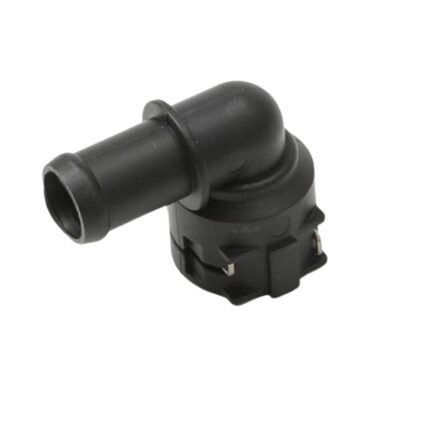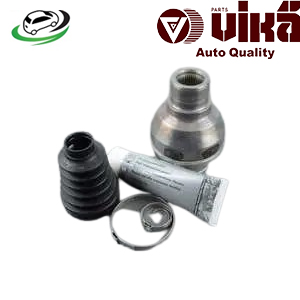Get AUDI A3 8P/ B7 A4/ TT MKII/ TTS / VW EOS/ Golf R/ Golf V/ Jetta V/ Passat B6 All 2.0T Timing Chain Tensioner 06F109217A
The timing chain tensioner is an essential component in the internal combustion engine’s timing system, ensuring that the timing chain maintains the correct tension and operates smoothly. Its role is crucial for the accurate synchronization of the engine’s camshaft and crankshaft, which controls the opening and closing of the engine’s valves. A malfunctioning timing chain tensioner can cause significant damage to the engine, leading to performance issues, costly repairs, or even catastrophic failure. This detailed article explores the timing chain tensioner’s functions, benefits, maintenance tips, and common issues.
1. Introduction to the Timing Chain Tensioner
The timing chain tensioner is part of the broader timing system in an internal combustion engine. The timing system comprises several components, including the timing chain, camshaft, crankshaft, sprockets, and guides, all of which work together to ensure the engine operates efficiently. The timing chain is responsible for transmitting power from the crankshaft to the camshaft, allowing for precise control of the engine’s valves in relation to the movement of the pistons.
Over time, the timing chain can experience stretching due to wear and tear, and the role of the tensioner is to maintain the proper tension on the chain to prevent slack. If the chain becomes too loose, it can lead to engine misfires, irregular valve timing, or catastrophic failure if the chain breaks or slips off the sprockets. The tensioner works by applying constant pressure to the chain, using either hydraulic or mechanical means, to keep it in position and ensure optimal performance.
2. Functions of the Timing Chain Tensioner
A. Maintaining Correct Tension on the Timing Chain
The primary function of the timing chain tensioner is to maintain the appropriate tension on the timing chain. This prevents the chain from becoming too loose or too tight. A loose timing chain can skip teeth on the sprockets, which would cause the engine to lose synchronization between the crankshaft and camshaft. Conversely, a chain that is too tight can increase friction, leading to premature wear and failure of the chain, sprockets, and other related components.
B. Ensuring Proper Valve Timing
The timing chain tensioner plays a key role in maintaining precise valve timing. By keeping the timing chain properly tensioned, it ensures that the engine’s valves open and close at the right times relative to the position of the pistons. This synchronization is critical for engine efficiency, as it directly affects air-fuel mixture intake, combustion, and exhaust processes. Any variation in timing can lead to engine misfires, poor fuel efficiency, and reduced performance.
C. Reducing Noise and Vibration
A loose or worn timing chain can produce noticeable noise, often described as a rattling or clattering sound, particularly during startup or under load. The tensioner helps to minimize these noises by keeping the chain taut and reducing vibrations. This contributes to a smoother and quieter engine operation, enhancing the overall driving experience.
D. Compensating for Chain Wear
As the timing chain stretches over time due to normal wear, the tensioner compensates for this elongation by automatically adjusting the tension. This ensures that the chain remains properly aligned and continues to function effectively throughout its service life, even as it undergoes gradual wear and tear.
3. Types of Timing Chain Tensioners
There are two main types of timing chain tensioners: mechanical and hydraulic. Each has its advantages and is suited for different engine designs.
A. Mechanical Timing Chain Tensioner
The mechanical timing chain tensioner relies on springs and mechanical components to maintain tension on the chain. This type of tensioner is more straightforward in design and is typically found in older engines or simpler engine designs. While mechanical tensioners are effective, they require periodic adjustment or replacement as the chain wears over time.
B. Hydraulic Timing Chain Tensioner
Hydraulic tensioners are more common in modern engines and use pressurized oil from the engine’s lubrication system to maintain tension on the timing chain. The hydraulic pressure automatically adjusts the tension based on the chain’s needs, providing a more precise and consistent level of tension. This type of tensioner generally requires less maintenance and adjustment compared to mechanical tensioners, but it is more complex and can be prone to failure if there are issues with oil pressure or lubrication.
4. Benefits of the Timing Chain Tensioner
The timing chain tensioner offers several key benefits that contribute to the overall performance and longevity of the engine.
A. Improved Engine Efficiency
By maintaining proper chain tension, the timing chain tensioner ensures precise synchronization between the crankshaft and camshaft, which directly affects valve timing. Proper valve timing is essential for efficient air-fuel mixture intake, combustion, and exhaust processes. This leads to improved engine efficiency, better fuel economy, and optimal power delivery.
B. Enhanced Engine Durability
A well-functioning timing chain tensioner helps reduce the wear and tear on the timing chain and related components. By preventing excessive slack or tightness in the chain, the tensioner minimizes friction and the risk of premature failure. This extends the service life of the timing chain, camshaft, crankshaft, and other engine components, contributing to the overall durability of the engine.
C. Reduced Noise and Vibration
The tensioner keeps the timing chain taut, which helps reduce the rattling or clattering noises often associated with loose or worn chains. This contributes to a quieter and smoother engine operation, enhancing the overall driving experience. Reduced vibration also means less stress on the engine components, which can further improve the engine’s lifespan.
D. Lower Maintenance Requirements
Hydraulic timing chain tensioners, in particular, require little to no adjustment or maintenance throughout their service life. These tensioners automatically adjust the tension as the chain wears, making them more convenient for the vehicle owner. Mechanical tensioners may require periodic adjustment, but they are generally simple to service.
5. Common Issues with Timing Chain Tensioners
While timing chain tensioners are designed to be durable, they are still prone to certain issues over time, especially in high-mileage or poorly maintained engines.
A. Wear and Tear
Like any mechanical component, the timing chain tensioner can experience wear and tear over time. Mechanical tensioners, in particular, may lose their ability to maintain proper tension as the springs weaken. Hydraulic tensioners can fail if there is a problem with the engine’s oil pressure or lubrication system.
B. Oil Pressure Problems
Hydraulic tensioners rely on engine oil to function properly. If there is an issue with oil pressure, such as a clogged oil passage or a failing oil pump, the tensioner may not receive sufficient oil pressure to maintain proper tension. This can lead to a loose timing chain, causing noise, poor engine performance, or even catastrophic failure.
C. Timing Chain Stretch
While the tensioner compensates for some degree of chain stretch, excessive wear or stretching of the timing chain can exceed the tensioner’s ability to maintain proper tension. This can result in chain slippage, loss of synchronization between the camshaft and crankshaft, and engine misfires.
D. Tensioner Failure
In some cases, the timing chain tensioner itself may fail due to mechanical or hydraulic issues. A broken spring in a mechanical tensioner or a loss of hydraulic pressure in a hydraulic tensioner can lead to complete loss of chain tension, which can cause severe engine damage if not addressed promptly.
6. Symptoms of a Failing Timing Chain Tensioner
Recognizing the symptoms of a failing timing chain tensioner is crucial to preventing engine damage. Common signs include:
A. Rattling or Clattering Noise
A loose timing chain can produce a noticeable rattling or clattering sound, especially during startup or under load. This is often one of the first signs of a failing tensioner.
B. Engine Misfires
If the timing chain becomes too loose or skips teeth on the sprockets, it can cause the engine’s valve timing to become out of sync with the pistons, leading to engine misfires.
C. Poor Engine Performance
A failing tensioner can cause the engine to run poorly, with reduced power, poor acceleration, and rough idling. This is due to the loss of precise valve timing.
D. Check Engine Light
In many modern vehicles, a failing timing chain tensioner can trigger the check engine light. The engine control unit (ECU) monitors the position of the camshaft and crankshaft, and if the timing is off, it will illuminate the check engine light.
7. Maintenance and Care for Timing Chain Tensioners
Maintaining the timing chain tensioner is essential for the longevity and performance of the engine. Here are some maintenance tips:
A. Regular Oil Changes
For hydraulic tensioners, maintaining proper oil pressure is critical. Regular oil changes ensure that the engine has clean, high-quality oil, which is necessary for the tensioner to function properly. Neglecting oil changes can lead to sludge buildup, which can clog oil passages and reduce pressure.
B. Inspect Timing Chain Components
During routine maintenance, it’s a good idea to inspect the timing chain, tensioner, and related components for signs of wear or damage. Look for excessive chain slack, worn sprockets, or oil leaks around the tensioner.
C. Replace Timing Chain and Tensioner Together
If the timing chain is being replaced due to wear or damage, it’s generally recommended to replace the tensioner at the same time. This ensures that both components are in good condition and will work together effectively.
D. Address Engine Noises Promptly
If you hear rattling or clattering noises coming from the engine, it’s important to address the issue promptly. Ignoring these symptoms can lead to severe engine damage, especially if the timing chain tensioner is failing.
8. Conclusion
The timing chain tensioner is a critical component of the engine’s timing system, ensuring that the timing chain operates smoothly and maintains proper tension. By keeping the crankshaft and camshaft synchronized, the tensioner plays a vital role in engine efficiency, performance, and durability. Regular maintenance, such as oil changes and inspections, is essential for preventing tensioner failure and avoiding costly engine repairs. Recognizing the symptoms of a failing tensioner, such as engine noise or misfires, allows drivers to address issues early and keep their engines running smoothly for years to come.
Follow us on Facebook for more parts.




Reviews
Clear filtersThere are no reviews yet.